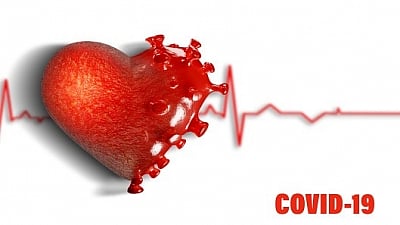World
Covid mRNA tech may create first-ever cure for heart attacks
UK scientists discovered world's first cure for heart attacks using same mRNA technology as Covid vaccines. With genetic tracking new heart cells replace the dead ones and develop a new muscle tissue

UK scientists may have discovered the world's first cure for heart attacks using the same mRNA technology as Covid vaccines.
Human heart has no capacity to heal itself after a heart attack.
But with the new technique called genetic tracking - built on the same technology used to create Pfizer and Moderna's Covid vaccines - can help new heart cells replace the dead ones and instead of forming a scar, develop a new muscle tissue. A team at King's College London tracked genetic codes called mRNAs which are injected into the heart to produce proteins that would generate healthy heart cells, Daily Mail reported.
Published: undefined
"We are all born with a set number of muscle cells in our heart and they are exactly the same ones we will die with. Our goal has been to find a treatment that can convince surviving cells to proliferate," lead researcher Professor Mauro Giacca was quoted as saying.
"Regenerating a damaged human heart has been a dream until a few years ago, but can now become a reality.
"We are using exactly the same technology as the Pfizer and Moderna vaccines to inject micro RNAs to the heart, reaching surviving heart cells and pushing their proliferation," Giacca said.
Besides helping hearts regenerate, the mRNAs also work towards a treatment to stop cells dying during a heart attack.
Published: undefined
Heart attack and stroke accounted for 85 per cent of 17.9 million deaths from cardiovascular diseases globally.
Scientists believe the new RNA (ribonucleic acid) therapy could revolutionise cardiovascular medicine and stop millions of heart attacks progressing towards heart failure, the report said.
The technology tested first to regenerate damaged pig hearts have so far been successful. Tests on humans are due in the next two years.
Published: undefined
Follow us on: Facebook, Twitter, Google News, Instagram
Join our official telegram channel (@nationalherald) and stay updated with the latest headlines
Published: undefined